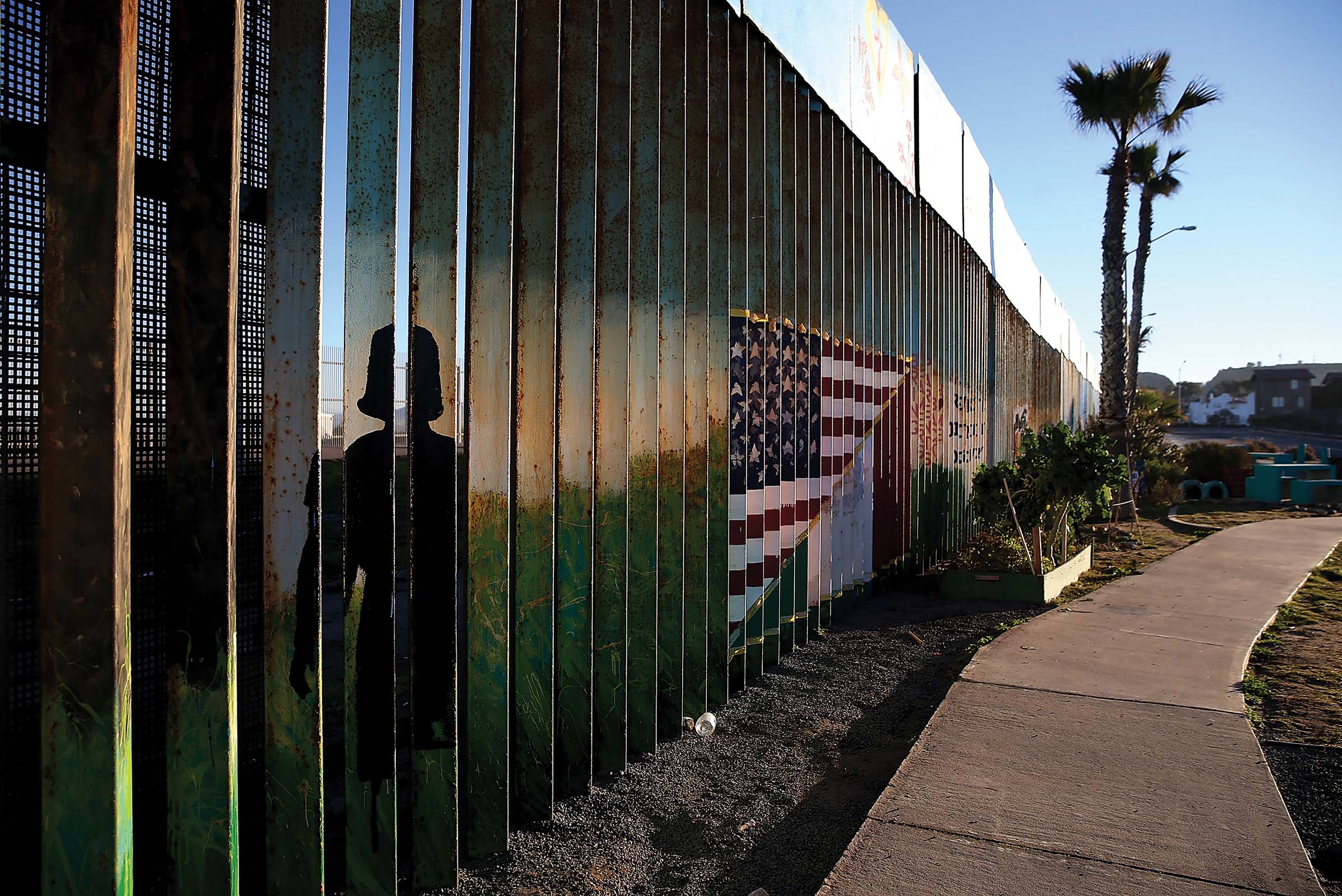Border battle forces courts to wade into appropriations law
Congress said ‘no’ on funding for Trump’s wall. But was that a hard ‘no’?

The legal fights over President Donald Trump’s move to build a wall along the U.S.-Mexico border have forced the federal courts to confront a new question: What does it look like when Congress denies a president’s request for an appropriation?
The answer might seem a straightforward call. The Appropriations Clause of the Constitution says no money can be spent unless it is in a spending law. Courts have already ruled that congressional control over federal expenditures is “absolute.” Congress passed laws to reinforce that control.
And it sure sounds like a “no” from Congress this time. Trump asked for $5.7 billion in fiscal 2019 to build a steel barrier along the southwest border and even shut down the government when he didn’t get it. Congress ultimately gave him a quarter of that — $1.375 billion — and only for one sector of the border.
But federal agencies do have some limited ability to transfer funds within their accounts. And the Trump administration has argued in court that Congress, at the same time it denied the direct request, also gave the government the statutory authority to transfer money into a fund that can be used for a range of projects that expressly includes fence construction on international borders.
The government says Congress did not explicitly spell out that no additional funds could be used for border barrier construction.
So judges are being asked to decide whether a congressional “no” on Trump’s high-profile direct request for wall funding also meant a “no” on the other mechanisms that Trump eventually turned to when he didn’t get it.
Flashback: Trump announces national emergency on border, despite likely legal challenge
Judges are without their typical guideposts on the issue. U.S. District Judge Trevor N. McFadden, facing that question during a hearing last week in Washington on the House lawsuit to stop the wall, asked whether there are any prior court decisions that judges can look to for guidance about when an appropriation has been denied by Congress.
There isn’t any such case law, House General Counsel Douglas Letter told McFadden.
McFadden then described his quandary. His instinct is that clearly Congress did deny Trump’s preference for direct funding of the wall construction. But he also said he understood Congress in sections of law did give authority for the alternative funding mechanisms used by the administration and did not deny those.
McFadden plans to issue a decision at a later date.
The next day, U.S. District Judge Haywood Gilliam Jr. in California delivered a 56-page opinion that covered some of the same legal ground about whether Congress had given authority for the transfers, part of what he called “one of the key issues” in a case that is a “Gordian knot of sorts.”
Gilliam, in his ruling, sided with a coalition of states and some environmental groups against the Trump administration and issued a preliminary injunction to stop border construction.
The Justice Department argued in that case that Section 8005 of the fiscal 2019 Defense spending law gives the Defense secretary the authority to transfer funds for military functions that are in the national interest.
The DOJ argued that the Defense Department can use that authority to put $1 billion into a fund that Congress approved for counter-drug activities, which expressly provides for “construction of roads and fences and installation of lighting to block drug smuggling corridors across international boundaries of the United States.”
There are a few apparent catches in the text of the laws for the government, though. Section 8005 says the transfers are available for “military functions (except military construction),” and the transferred funds can’t be used for projects that have been denied by Congress.
Gilliam decided that Congress had denied such a move when it denied the president’s request and made “a clear decision to deny the border barrier funding sought here.” And he wrote that the Justice Department can point to nothing in the law or legislative history to back up its argument that Congress would have to explicitly deny a project to stop the Section 8005 transfer.
“The reality is that Congress was presented with — and declined to grant — a $5.7 billion request for border barrier construction,” Gilliam wrote. “Border barrier construction, expressly, is the item Defendants now seek to fund via the Section 8005 transfer, and Congress denied the requested funds for that item.”
Last week, Letter said the House did exactly what it needed to do to deny Trump’s full request for border wall construction funds with “amazing specificity” during the high-profile government shutdown. Congress doesn’t need to pass another law or tweak appropriations riders to say, “no, no, we really meant it,” Letter said.





